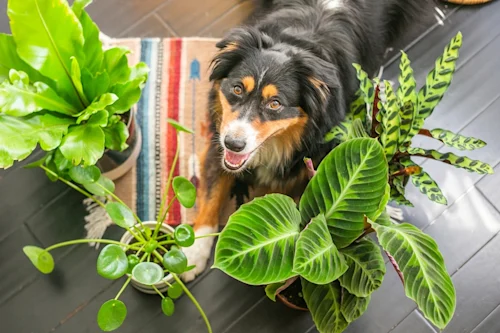
5 Plants That Are Toxic to Dogs
Table of Contents
Do you often find your dog chewing on things they’re not supposed to? Whether it’s out of boredom or curiosity, dogs (and especially puppies) use their mouths to explore the world around them.
We love our furry friends and want to keep them safe from ingesting things that could make them sick. This means providing them with plenty of stimulation with appropriate chew toys, but may also require making some changes to your environment.
Plants both indoors and out can look great but may be toxic for your pup. Read on to learn about some plants that are toxic to dogs and better, safe alternatives you can use instead.
5 Plants Toxic to Dogs
From houseplants and berries to shrubs and flowers, here are some common plants toxic to dogs.
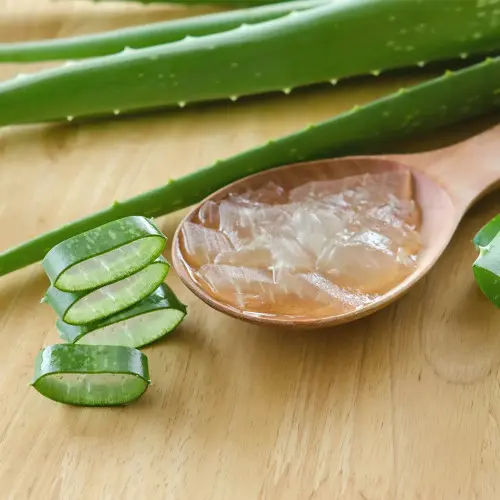
1. Aloe Vera
This is one of the most common houseplants that are toxic to dogs and cats. While aloe has a lot of benefits for both humans and pets when used topically, it shouldn’t be ingested by dogs.
Aloe latex, the sap under the rind, contains a natural chemical called aloin which can irritate the intestines. If your dog eats this, it can cause an upset stomach, vomiting, and diarrhea. Instead, opt for a pet-safe succulent like Echeveria which is just as low-maintenance and gives off desert vibes.
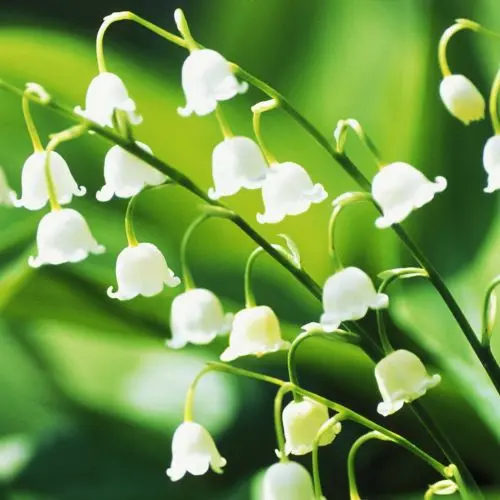
2. Lily of the Valley
These sweet-smelling and pretty plants are popular among gardeners, but are also poisonous to dogs. All parts of the plant are considered toxic and can cause a slow heart rate, low blood pressure, and, in extreme cases, seizures.
If you want your garden to smell sweet, lilacs are a beautiful non-toxic option.
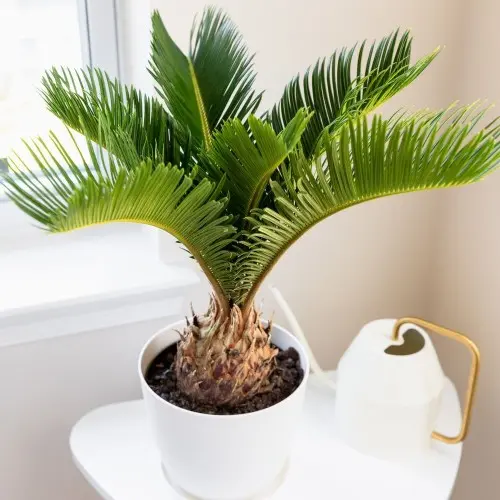
3. Sago Palm
This is a common houseplant or landscaping plant if you want to achieve a tropical look. But while these mini palm trees are pretty, they are toxic to all pets and can cause vomiting, diarrhea, abdominal pain, and potentially liver failure.
Instead, consider a parlor palm or date palm that also gives off a tropical feel and are safe for your pets.
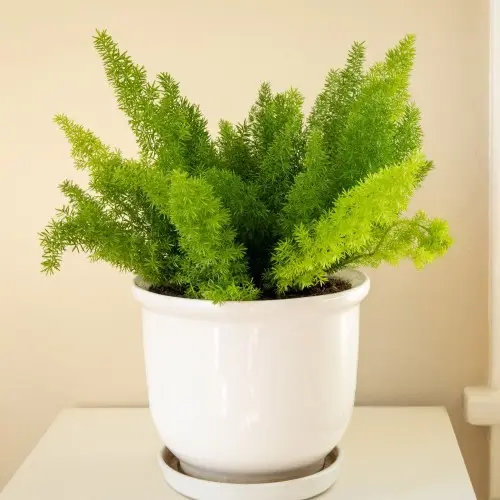
4. Asparagus Fern
This fun plant adds some whimsy to your home but is toxic to dogs and cats. That’s because its berries contain saponin, which is a steroid. If your pet ingests them, it could cause abdominal pain, vomiting, and diarrhea.
If you love the look of ferns, consider a Boston fern instead. This lush greenery looks stunning in a hanging basket; just make sure to give it plenty of water and mist it regularly.
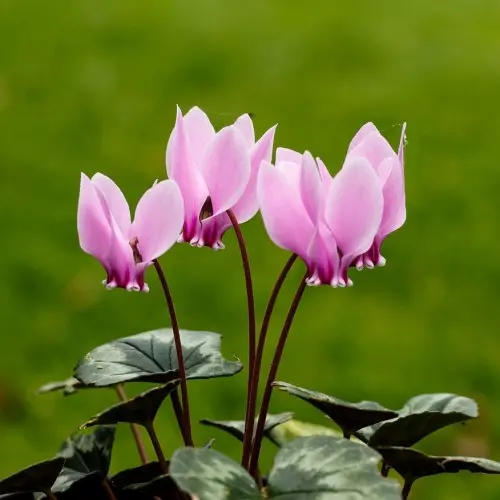
5. Cyclamen
This popular houseplant can instantly add color to your room. The bright pink blooms last a long time, but if your dog eats any part of this plant, it could cause them to drool, vomit, and have diarrhea.
Luckily, there are many plants that are non-toxic to dogs and are just as pretty. If you love pink, add a fun polka-dot plant. For colorful blooms, consider African violets that come in pretty shades of pink and purple.
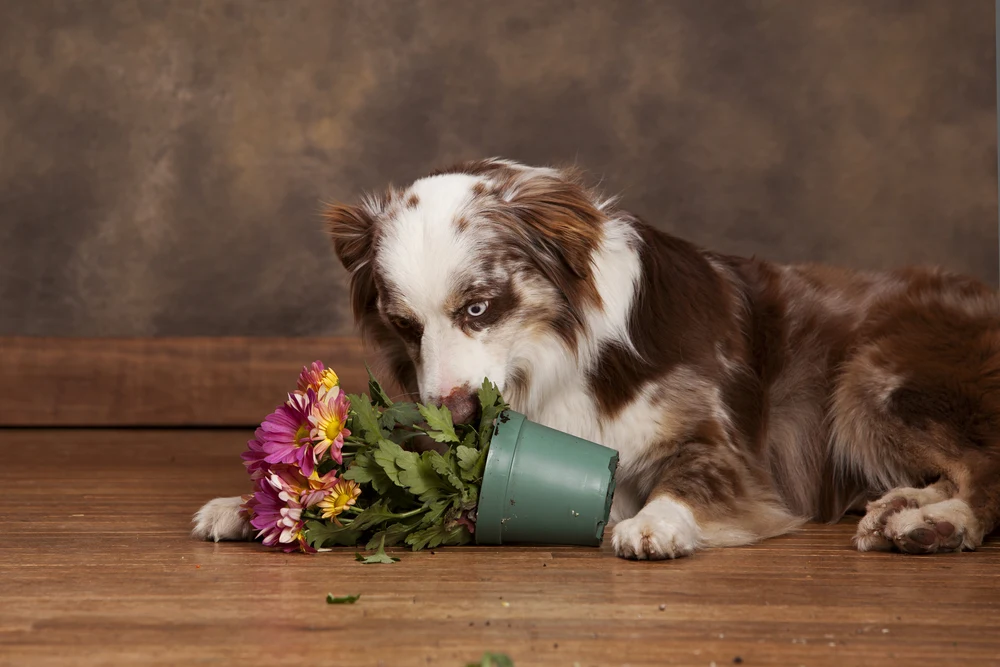
Other Plants Poisonous to Dogs
Of course, these are just a handful of plants that are toxic to dogs. Here are some other common plants you should make sure your dog doesn’t ingest:
•Azalea
•Begonia
•Boxwood
•Calla Lily
•Carnation
•Elephant Ears
•Tulips
•Wisteria
The ASPCA has a handy list that can help you determine if your plant is toxic to pets.
A good rule of thumb is to ensure your dog never ingests plants. Even if they’re labeled as non-toxic plants for dogs, the roughage can still irritate their intestines and cause them discomfort.
What to Do if Your Dog Eats a Toxic Plant
It can be stressful when you realize your pup has eaten a toxic plant. Here are some steps to take if you know (or suspect) your dog has eaten a poisonous plant:
•Remove the plant from your dog’s reach. Take note of its name since this can help the veterinarian create a care plan.
•Check on your pet. Make sure he or she is breathing and behaving normally and note any symptoms you will need to explain to the vet.
•Call your veterinarian or ASPCA Animal Poison Control at 888-426-4435. After explaining what happened, they can help you determine the best next steps for your pup.
•Head to an emergency vet if it’s advised by a professional or if your dog is not behaving normally.
With these tips in mind, you can now keep your home and yard a space free from plants that are toxic to dogs. Want to learn about more ways to improve your dog’s life? Learn more about raw dog food diets from We Feed Raw.
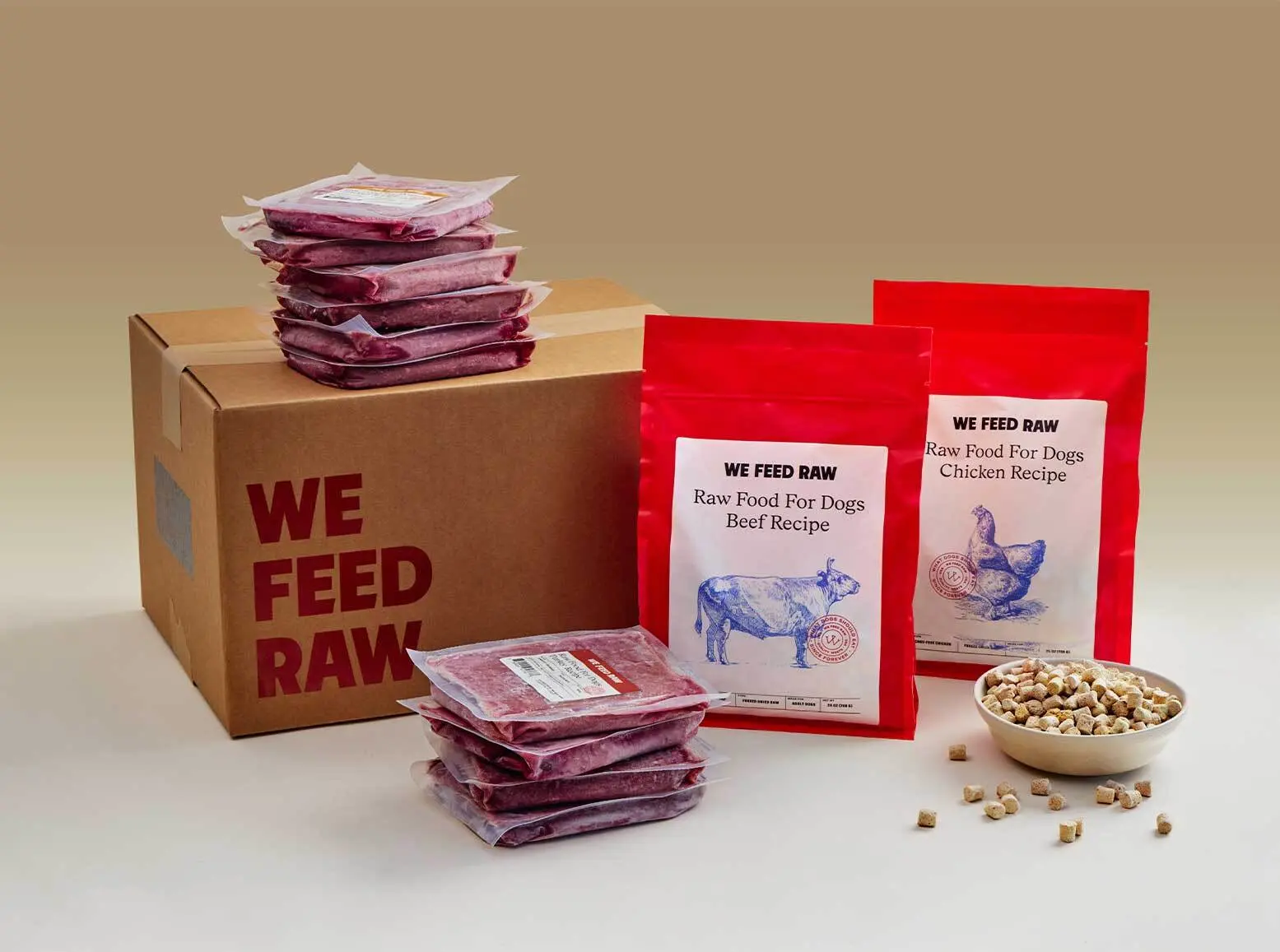
Our Meals Change Lives.
(Theirs + Yours.)
See health improvements from our raw meals in as little as 1 week.
